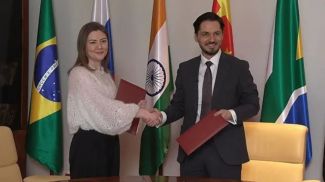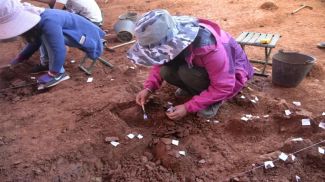SAMARKAND, 16 September (BelTA - China Daily). - The 22nd meeting of the Council of Heads of State of the Shanghai Cooperation Organization (SCO) will be held in the city of Samarkand on Thursday.
Since its founding in 2001, SCO, now with eight full members, four observer countries and multiple dialogue partners, has become not only a strong pillar of global peace and development, but also a major force for international equity and justice.
As this year marks the 20th anniversary of the signing of the SCO Charter and the 15th anniversary of the signing of the Treaty on Long-Term Good-Neighborliness, Friendship and Cooperation of the SCO Member States, global attention has been placed on the upcoming Samarkand Summit of the SCO, where leaders will discuss how to jointly address global challenges and promote security and development.
Here's what's on the agenda for the SCO summit.
New membership
Last year, the SCO launched procedures to admit Iran as a full member state. Moreover, it has granted dialogue partner status to Saudi Arabia, Egypt and Qatar.
The memorandum of understanding on Iran's accession to the SCO will be discussed at this year's summit. Belarus has also formally submitted an application for full membership.
The SCO has grown into the world's largest and most populous regional institution, and it has endeavored to explore new ground, both theoretically and with actual steps, with a view to build a new type of international relations and a community with a shared future for mankind.
Shared future for mankind
The SCO is expected to continuously uphold the "Shanghai Spirit", commit itself to building a closer SCO community with a shared future, and make greater contributions to lasting peace and the common development of the world.
The summit will issue the Samarkand Declaration, which will be a comprehensive political declaration on the SCO's position on international politics, economy and a range of other aspects.
The participants will also discuss climate change, and the security of supply chains, energy and food, which are factors having great influence on the well-being of all humankind.
The SCO countries have been supporting the further improvement of global economic governance, agreeing to deepen cooperation in building an open world economy.
They also underlined the importance of further developing cooperation in a wide range of fields including culture, healthcare, education, science and technology, tourism, environment protection, mass media and sports.
Joint construction of Belt and Road
Most SCO members, observers and dialogue partners are located along the ancient Silk Road, providing them the geographical advantage of participating in the Belt and Road Initiative. In addition, the spirits of the two cooperation frameworks are in line with each other.
The practical cooperation among SCO member states will be further expanded to green development, digital economy and other areas in the future in line with the concepts of "a green Silk Road" and "a digital Silk Road".
SCO member states have implemented the initiative since it was first introduced, expanding pragmatic cooperation, increasing the construction of infrastructure and aligning their countries own development plans with the initiative, which has led to growth in trade, smooth freight and logistics, more transport capacity, and a boost in cultural exchanges and tourism development.
In 2021, the combined GDP of all SCO nations was $23.3 trillion, 13 times higher than when the organization was founded, and China has been ramping up efforts to boost trade with other SCO members, seeing its total trade volumes with other members reach $343.1 billion, a 40 percent rise from the previous year.
SCO has also been promoting synergy between the Belt and Road cooperation and the development strategies of various countries and regional cooperation initiatives.
In May 2015, China and Russia signed a joint declaration of the connection of the Silk Road Economic Belt and the Eurasian Economic Union.
China and Kazakhstan have also found common goals by synergizing the initiative and Kazakh's economic plan, known as "Nurly Zhol" (meaning "bright path").
The BRI also accelerates cooperation between China and Uzbekistan, which offered the desired opportunity for Uzbekistan to improve its inter-connectivity with the outside world and play a greater role in wider regional development.













